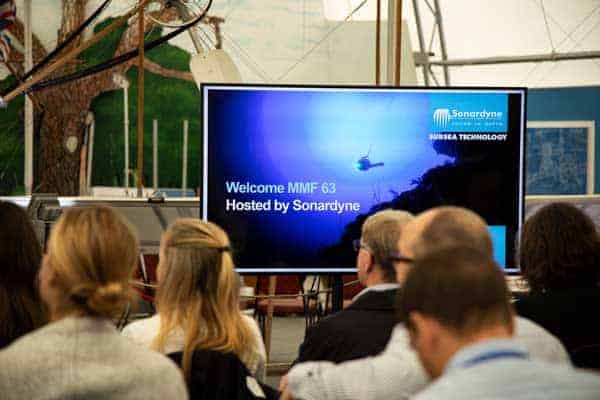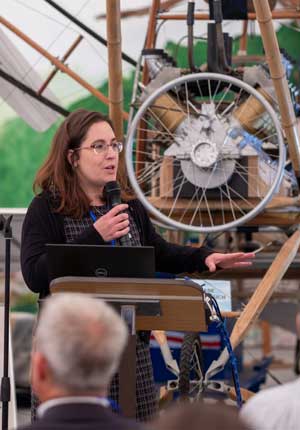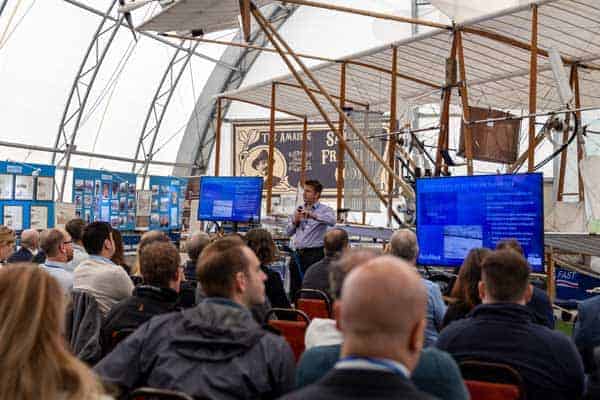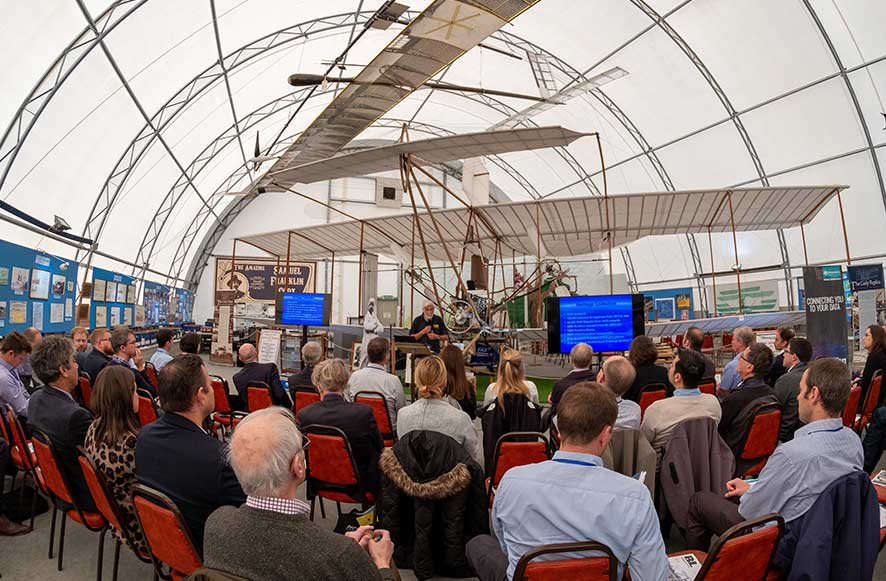By Geraint West – Global Business Manager, Oceanographic
From entire basin-wide acoustic monitoring systems to unmanned surface vessel (USV) survey and data gathering operations, great in-roads are being made into how much we know and are now able to learn about the oceans.
Some of these in-roads were shared at the 63rd Marine Measurement Forum (MMF), held last week.

This fantastic non-profit and non-affiliated event, which we had the pleasure of organising and hosting at the at Farnborough Air Sciences Trust (FAST) museum, brought together people from across science and industry to discuss some of the latest initiatives and technologies in marine measurement.
About 60 attendees heard talks ranging from how we’re tracking sea-life and broadcasting to the world live from underwater submersibles to work that’s helping to clear plastic from the oceans.
Under particular focus was the increasing amount of work being done with USVs. But, it was also great to hear about basin-wide collaborative monitoring efforts and new sensor developments that will enable researchers and industry to sense more with single systems.
 We want to thank all of the speakers who gave their time to share their work, including: the Nekton Foundation, AutoNaut, the National Oceanography Centre (NOC), Chelsea Technologies, the Centre for Environment, Fisheries and Aquaculture Science (Cefas), XOCEAN, Plymouth Marine Laboratory (PML), HR Wallingford, the National Physics Laboratory (NPL), R&V Hazelwood Associates and ourselves.
We want to thank all of the speakers who gave their time to share their work, including: the Nekton Foundation, AutoNaut, the National Oceanography Centre (NOC), Chelsea Technologies, the Centre for Environment, Fisheries and Aquaculture Science (Cefas), XOCEAN, Plymouth Marine Laboratory (PML), HR Wallingford, the National Physics Laboratory (NPL), R&V Hazelwood Associates and ourselves.
Our thanks also go to The Hydrographic Society whose Southern Region evening meeting, chaired by our very own Edd Moller, joined us at FAST following a locally supplied curry and drinks. The focus – The Fourth Industrial Revolution – with talks from XOCEAN and L3 Harris ASV, was a great follow-on from the talks we’d heard during the MMF.
We’re also hugely grateful to our venue, the truly fascinating FAST, which we got a chance to look around between talks. It’s well worth a visit for anyone interested in technology development, not just aeronautical. The museum’s archival material and built heritage date back to 1906 and include a 24ft wind tunnel and a raft of exhibits and aircraft, including a full scale replica of Samuel Franklin Cody’s aircraft – famed for having undertaken the first powered “controlled” flight in Britain.
 But, none of this would have been possible without those behind the MMF. In case you’ve not heard of the MMF, it’s a series of non- profit one-day events focused on the informal exchange of ideas, knowledge, techniques and developments across an extensive range of marine scientific measurement activities. It’s run by a volunteer committee and hosted on a volunteer basis.
But, none of this would have been possible without those behind the MMF. In case you’ve not heard of the MMF, it’s a series of non- profit one-day events focused on the informal exchange of ideas, knowledge, techniques and developments across an extensive range of marine scientific measurement activities. It’s run by a volunteer committee and hosted on a volunteer basis.
While we are making in-roads into what we know about our oceans, there’s still a long way to go. That’s why we’re already looking forward the next MMF, which will be hosted by The Hydrographic Society and in Plymouth in Spring 2020. Keep an eye on www.mmf-uk.org for details, or better still, sign up for the mailing list via the website.
